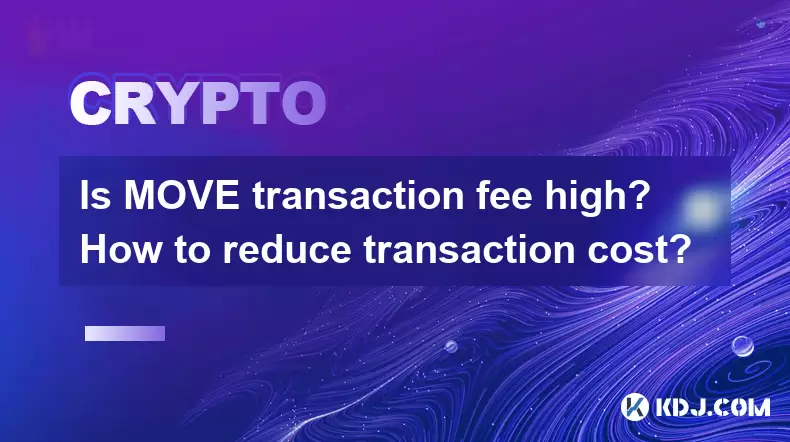-
 Bitcoin
Bitcoin $118800
-0.43% -
 Ethereum
Ethereum $4231
-0.53% -
 XRP
XRP $3.140
-1.41% -
 Tether USDt
Tether USDt $1.000
-0.02% -
 BNB
BNB $808.5
0.57% -
 Solana
Solana $175.1
-4.38% -
 USDC
USDC $0.9999
0.01% -
 Dogecoin
Dogecoin $0.2229
-4.71% -
 TRON
TRON $0.3458
2.18% -
 Cardano
Cardano $0.7744
-3.43% -
 Hyperliquid
Hyperliquid $43.19
-4.44% -
 Chainlink
Chainlink $21.19
-4.12% -
 Stellar
Stellar $0.4313
-2.84% -
 Sui
Sui $3.659
-5.59% -
 Bitcoin Cash
Bitcoin Cash $580.1
1.65% -
 Hedera
Hedera $0.2472
-4.61% -
 Ethena USDe
Ethena USDe $1.001
-0.03% -
 Avalanche
Avalanche $22.88
-3.98% -
 Litecoin
Litecoin $120.5
-2.63% -
 Toncoin
Toncoin $3.375
0.74% -
 UNUS SED LEO
UNUS SED LEO $8.984
-1.31% -
 Shiba Inu
Shiba Inu $0.00001296
-4.28% -
 Uniswap
Uniswap $11.06
1.08% -
 Polkadot
Polkadot $3.869
-4.65% -
 Cronos
Cronos $0.1664
1.09% -
 Dai
Dai $1.000
0.00% -
 Ethena
Ethena $0.7979
0.07% -
 Bitget Token
Bitget Token $4.395
-1.14% -
 Monero
Monero $268.2
-0.19% -
 Pepe
Pepe $0.00001125
-6.91%
Is MOVE transaction fee high? How to reduce transaction cost?
MOVE transaction fees can be high during peak times; reduce costs by timing transactions, adjusting gas prices, batching, using layer 2 solutions, and choosing optimized wallets.
May 21, 2025 at 02:28 am

Is MOVE transaction fee high? How to reduce transaction cost?
When dealing with cryptocurrencies, understanding and managing transaction fees is crucial for users. The MOVE cryptocurrency, like other digital currencies, involves transaction fees that can impact the overall cost of using the network. In this article, we will delve into the specifics of MOVE transaction fees, analyze whether they are high, and provide detailed strategies on how to reduce these costs effectively.
Understanding MOVE Transaction Fees
MOVE transaction fees are the costs associated with processing transactions on the MOVE blockchain. These fees are paid to validators who process and verify transactions, ensuring the network's security and efficiency. The fee structure for MOVE is typically determined by the network's congestion and the complexity of the transaction.
The fees for MOVE transactions can vary significantly. During periods of high network congestion, fees may increase due to the increased competition for block space. Conversely, during times of low activity, fees tend to be lower. It's essential to understand that MOVE's fee structure is dynamic and can fluctuate based on several factors.
Factors Influencing MOVE Transaction Fees
Several factors can influence the transaction fees on the MOVE network:
- Network Congestion: When the MOVE network is busy, the demand for block space increases, leading to higher fees. Conversely, during times of low activity, fees are generally lower.
- Transaction Size and Complexity: Larger and more complex transactions, such as those involving smart contracts, may incur higher fees due to the additional computational resources required.
- Gas Prices: MOVE, like other blockchain networks, uses a concept called gas to measure the computational effort required to execute operations. The gas price, set by the user, directly impacts the transaction fee.
- Validator Preferences: Some validators may prioritize transactions with higher fees, leading users to pay more to ensure their transactions are processed quickly.
Are MOVE Transaction Fees High?
Whether MOVE transaction fees are considered high depends on various factors, including the user's perspective and the current state of the network. Compared to other cryptocurrencies, MOVE's fees can be moderate to high, especially during peak times.
For instance, during periods of high demand, such as significant market movements or popular token launches, MOVE fees can spike, making them seem high to users. However, when the network is less congested, fees can be relatively low, offering a more cost-effective experience.
Strategies to Reduce MOVE Transaction Fees
Reducing transaction costs on the MOVE network involves understanding and leveraging several strategies. Here are some effective ways to minimize your fees:
Timing Your Transactions: One of the most straightforward ways to reduce fees is to time your transactions during periods of low network congestion. Monitoring network activity and choosing to transact when the network is less busy can lead to lower fees.
Adjusting Gas Prices: Users have control over the gas price they set for their transactions. Setting a lower gas price can result in lower fees, although it may also mean longer processing times. It's a trade-off between cost and speed that users need to consider.
Batch Transactions: If you need to perform multiple transactions, consider batching them into a single transaction. This approach can reduce the overall cost, as you only pay a single fee for multiple operations.
Using Layer 2 Solutions: Some blockchain networks offer layer 2 solutions that can process transactions off the main chain, reducing the load and, consequently, the fees. Exploring layer 2 options for MOVE could provide a cost-effective way to transact.
Choosing the Right Wallet: Different wallets may handle transaction fees differently. Using a wallet that offers fee optimization features can help you manage and reduce your costs more effectively.
Practical Steps to Implement Fee Reduction Strategies
To put these strategies into action, here are some practical steps you can follow:
Monitor Network Congestion:
- Use tools like blockchain explorers or network analytics platforms to track MOVE's current network activity.
- Look for times when the network has lower transaction volumes and plan your transactions accordingly.
Adjust Gas Prices:
- When setting up a transaction, you can usually adjust the gas price within your wallet or transaction interface.
- Start with a lower gas price and monitor the transaction's progress. If it's not processing quickly enough, you can increase the gas price slightly and resubmit.
Batch Transactions:
- If you're using a wallet that supports batching, gather all the transactions you need to perform.
- Initiate a single transaction that includes all these operations, reducing the total number of fees you pay.
Explore Layer 2 Solutions:
- Research any layer 2 solutions available for the MOVE network.
- Set up and use these solutions according to the provider's instructions, which typically involve transferring your assets to the layer 2 network and back to the main chain when needed.
Select an Optimized Wallet:
- Research different wallets that support MOVE and look for those that offer features like automatic fee optimization.
- Download and set up the chosen wallet, following the provider's instructions to ensure you're using it correctly.
Tools and Resources for Managing MOVE Transaction Fees
To effectively manage your MOVE transaction fees, it's helpful to have access to the right tools and resources. Here are some recommendations:
Blockchain Explorers: Platforms like MOVEscan or similar blockchain explorers provide real-time data on network congestion and transaction fees. They can help you make informed decisions about when to transact.
Fee Estimation Tools: Some wallets and third-party services offer fee estimation tools that can suggest optimal gas prices based on current network conditions.
Network Analytics Platforms: Websites that provide detailed analytics on blockchain networks can help you understand trends and patterns in MOVE's fee structure.
Community Forums and Social Media: Engaging with the MOVE community on forums and social media can provide insights and tips from experienced users on managing transaction fees.
Frequently Asked Questions
Q: Can I avoid transaction fees entirely on the MOVE network?
A: It's not possible to avoid transaction fees entirely on the MOVE network, as they are necessary to incentivize validators to process and secure transactions. However, by using the strategies outlined above, you can significantly reduce these costs.
Q: How do I know if the gas price I set is too low or too high?
A: You can monitor the status of your transaction using a blockchain explorer. If the transaction is stuck in the mempool for an extended period, the gas price might be too low. Conversely, if the transaction is processed quickly but the fee is higher than necessary, the gas price might be too high. Adjusting based on these observations can help you find the right balance.
Q: Are there any risks associated with setting a low gas price?
A: Yes, setting a low gas price can result in longer transaction times or even failed transactions if the network is congested. There's a risk that your transaction might not be picked up by validators if the fee is too low, leading to delays or the need to resubmit the transaction with a higher fee.
Q: Can I use a different cryptocurrency to pay for MOVE transaction fees?
A: Currently, MOVE transaction fees must be paid in MOVE. However, some platforms and services might offer the ability to convert other cryptocurrencies to MOVE for the purpose of paying fees, but this is not a standard feature of the MOVE network itself.
Disclaimer:info@kdj.com
The information provided is not trading advice. kdj.com does not assume any responsibility for any investments made based on the information provided in this article. Cryptocurrencies are highly volatile and it is highly recommended that you invest with caution after thorough research!
If you believe that the content used on this website infringes your copyright, please contact us immediately (info@kdj.com) and we will delete it promptly.
- Dogecoin's Wild Ride: Big Holders, Price Push, and What's Next for the Meme Coin
- 2025-08-12 08:30:12
- Bitcoin to $133,000? Here's What the Experts Are Saying
- 2025-08-12 08:30:12
- Dogecoin, Meme Coins, and Whale Buys: What's the Hype?
- 2025-08-12 06:50:12
- Bitcoin, Ethereum, and the Pump-and-Dump Merry-Go-Round: A New Yorker's Take
- 2025-08-12 07:10:12
- MAGACOIN Mania: Why Holders Are Staking Their Claim in This Bull Season
- 2025-08-12 06:30:13
- Heritage Distilling's Bold Bet: A $360M IP Treasury Powered by Story Protocol
- 2025-08-12 06:30:13
Related knowledge

How to purchase Aragon (ANT)?
Aug 09,2025 at 11:56pm
Understanding Aragon (ANT) and Its PurposeAragon (ANT) is a decentralized governance token that powers the Aragon Network, a platform built on the Eth...

Where to trade Band Protocol (BAND)?
Aug 10,2025 at 11:36pm
Understanding the Role of Private Keys in Cryptocurrency WalletsIn the world of cryptocurrency, a private key is one of the most critical components o...

What is the most secure way to buy Ocean Protocol (OCEAN)?
Aug 10,2025 at 01:01pm
Understanding Ocean Protocol (OCEAN) and Its EcosystemOcean Protocol (OCEAN) is a decentralized data exchange platform built on blockchain technology,...

Where can I buy UMA (UMA)?
Aug 07,2025 at 06:42pm
Understanding UMA and Its Role in Decentralized FinanceUMA (Universal Market Access) is an Ethereum-based decentralized finance (DeFi) protocol design...

How to buy Storj (STORJ) tokens?
Aug 09,2025 at 07:28am
Understanding Storj (STORJ) and Its Role in Decentralized StorageStorj is a decentralized cloud storage platform that leverages blockchain technology ...

Where to find the best price for Audius (AUDIO)?
Aug 11,2025 at 04:01pm
Understanding the Basics of Ethereum StakingEthereum staking refers to the process of locking up ETH tokens to support the security and operations of ...

How to purchase Aragon (ANT)?
Aug 09,2025 at 11:56pm
Understanding Aragon (ANT) and Its PurposeAragon (ANT) is a decentralized governance token that powers the Aragon Network, a platform built on the Eth...

Where to trade Band Protocol (BAND)?
Aug 10,2025 at 11:36pm
Understanding the Role of Private Keys in Cryptocurrency WalletsIn the world of cryptocurrency, a private key is one of the most critical components o...

What is the most secure way to buy Ocean Protocol (OCEAN)?
Aug 10,2025 at 01:01pm
Understanding Ocean Protocol (OCEAN) and Its EcosystemOcean Protocol (OCEAN) is a decentralized data exchange platform built on blockchain technology,...

Where can I buy UMA (UMA)?
Aug 07,2025 at 06:42pm
Understanding UMA and Its Role in Decentralized FinanceUMA (Universal Market Access) is an Ethereum-based decentralized finance (DeFi) protocol design...

How to buy Storj (STORJ) tokens?
Aug 09,2025 at 07:28am
Understanding Storj (STORJ) and Its Role in Decentralized StorageStorj is a decentralized cloud storage platform that leverages blockchain technology ...

Where to find the best price for Audius (AUDIO)?
Aug 11,2025 at 04:01pm
Understanding the Basics of Ethereum StakingEthereum staking refers to the process of locking up ETH tokens to support the security and operations of ...
See all articles

























































































